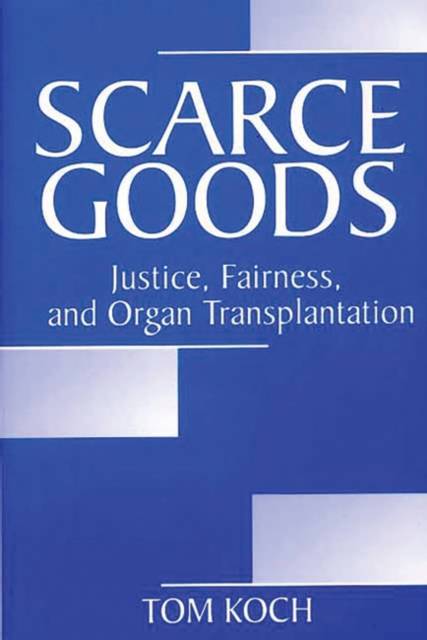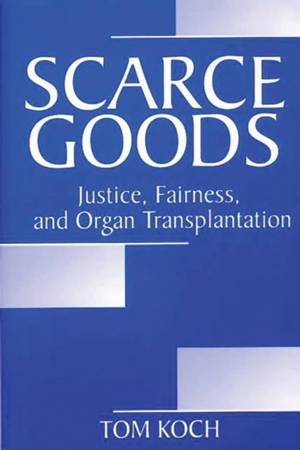
- Retrait gratuit dans votre magasin Club
- 7.000.000 titres dans notre catalogue
- Payer en toute sécurité
- Toujours un magasin près de chez vous
- Retrait gratuit dans votre magasin Club
- 7.000.0000 titres dans notre catalogue
- Payer en toute sécurité
- Toujours un magasin près de chez vous
Description
In 1841 the American sailing ship William Brown struck an iceberg. About half of the passengers and all of the crew were saved in two small, open boats. The next night, half of the passengers in the larger long-boat were thrown overboard because the boat was overfull. This was the first case of lifeboat ethics, of hard choices in the face of scarcity. Since then the question has been who should die so that others, equally needy, might live? Both the case of the William Brown and the ethics it spawned have been used in recent years to describe the problem of health care rationing generally, and organ transplantation specifically.
Koch reexamines and reinterpretes the paradigm case of lifeboat ethics, the story of the William Brown, not as an unavoidable tragedy, but as an avoidable series of errors. Its relation to more general issues of distributive justice are then considered. The lessons learned from both the historical review and its application to distributive principles are then applied to the problem of graft organ distribution in the United States. Through the use of maps, the problem of organ distribution is considered at a range of scales, from the international to the urban. The contextual issues become more evident as one moves from international to hemispheric, fron national to regional, and then local systems. Finally, Koch reviews the lessons in light of other problems of distribution in the face of scarcity. The central lesson-that scarcity is exacerbated where it is not in fact created by our distributive programs-is explored thoroughly. The result is no good choices for anyone and the continuation of the scarcity that for most seems inevitable, but, from the evidence provided, is itself an outcome of inequalities of distribution at different scales of society. Of particular interest to students, scholars, and policymakers involved with issues of planning and health care economics, medical geography, and concepts of justice.Les avis
Nous publions uniquement les avis qui respectent les conditions requises. Consultez nos conditions pour les avis.







